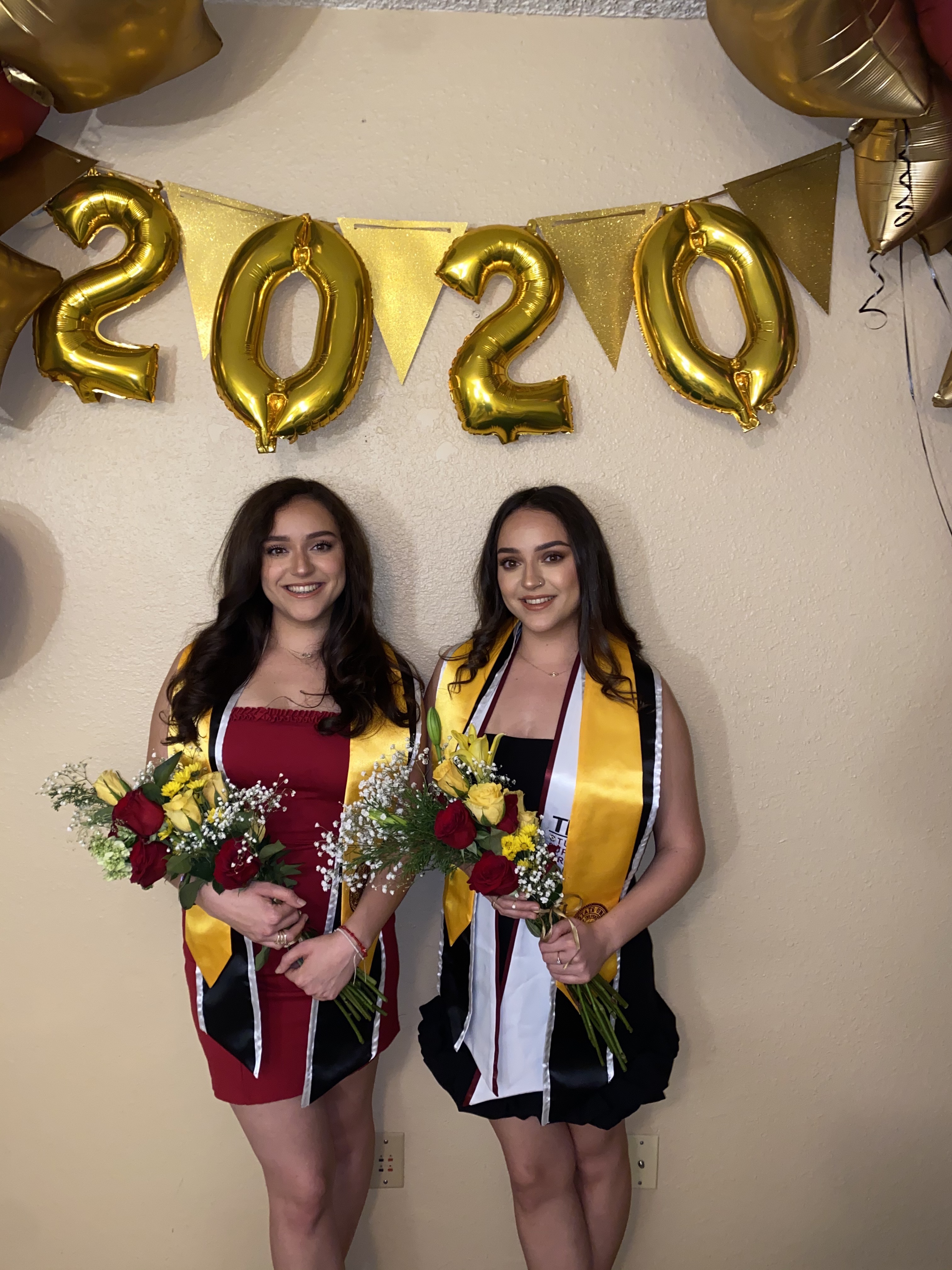ASU grad twins inspired to impact community health
The Montano twins, Anahi and Sarahi, didn’t plan to attend college together, but ASU and health professions called both of their names. Scholarships, proximity to home, programs of choice and the presence ASU had in their upbringing made the decision easy.
The Montanos were both part of the TRIO Upward Bound program, which provides academic support, mentoring and other resources to first-generation or low-income college-bound high school students.
The academic support ASU provided to them as first-generation college students was important, they said. The sisters weren’t sure what lay ahead after they graduated high school, but ASU guided them through the nerve-wracking transition.
“ASU had a very involved presence in my education,” said Sarahi. “I always had ASU in the back of my mind. I had a lot of information about ASU. I really liked the environment I would see when I was a part of the program. I guess that is why ASU was the best choice for me.”

Anahi and Sarahi Montano after their virtual ASU graduation.
After excelling throughout high school, the Montanos, who are from Tempe, were ready to take their collegiate experience by storm.
Anahi’s path was influenced by diabetes’s effect on her family. She was upset with the lack of information they were given after her parents were both diagnosed. If you go into a doctor's office scared and unaware of what they might tell you, the entire experience can become overwhelming, she said.
“I am sure I am not the only one, so I was like let me try dietetics,” said Anahi. “I can be a registered dietitian helping people, whether it's diabetes, kidney disease or whatever else. I wanted to make sure those people were heard, especially minorities [and the] Spanish-speaking community.”
Anahi wants to ensure that people like her family are knowledgeable about what is going on inside their bodies.
Sarahi, majoring in biological sciences and double minoring in Spanish linguistics and sociology, knew from the get-go where she was meant to be. A third-year high school biology class taught her just that.
After college graduation, the twins began their search for what’s next.
Anahi is now studying to receive her driver medic technician certification. After a year of virtual learning, she is ready to dive into hands-on experience. The certification is the first step toward boosting her resumè for future internships and a career as a dietitian.
Sarahi is renewing her emergency medical technician license. In the meantime, she will begin applications for physician assistant school.
As they graduated, the Montano twins reflected on their time at ASU and shared their advice for current Sun Devils.
Question: What was your “aha” moment, when you realized what you wanted to study?
Sarahi: When I was in high school I was taking a third-year biology course at my high school, and I realized how much I liked it and I enjoyed learning about it. So I realized it was perfect for me. When I took that course it really opened my eyes. That's why I decided to go with my biology major and what made me stay in it is that I am on track for pre-PA [physician assistant].
Anahi: I actually started with biomedical informatics, and about a semester and a half in I really hated it. Around the same time, my dad had become diagnosed with diabetes and my mother was already diagnosed. When he was diagnosed I found myself really frustrated with how their doctors handled it. As I started to learn more I said I really like nutrition and I am really frustrated with the way my parents’ doctors are handling everything. I am sure I am not the only one, so I was like let me try dietetics so I can be a registered dietitian.
Q: What is the best piece of advice you would give to those still in school?
Anahi: Don’t be afraid to ask for help. I had to learn the hard way. Don't be afraid to ask for help; you’re only doing an injustice to yourself if you don’t.
Sarahi: I agree 100 percent. I would also say please take advantage of the resources you have, because once you graduate it is very limited resources you get to have.
Q: What was your favorite spot on campus?
Sarahi: I would say the lower level of the Hayden Library. I spent a lot of long nights in the lower level studying with friends. If it is the middle of the day and that spot is open I know I can sit there and concentrate.
Q: If someone gave you $40 million to solve one problem, what would you do with it?
Anahi: I would probably tackle the problem of access to health care. I find a lot of people are scared to go to the doctor. If they are feeling sick they don’t go, they don’t have insurance or they can’t afford their company. I would put it toward making it more accessible and less scary to go to the doctor.